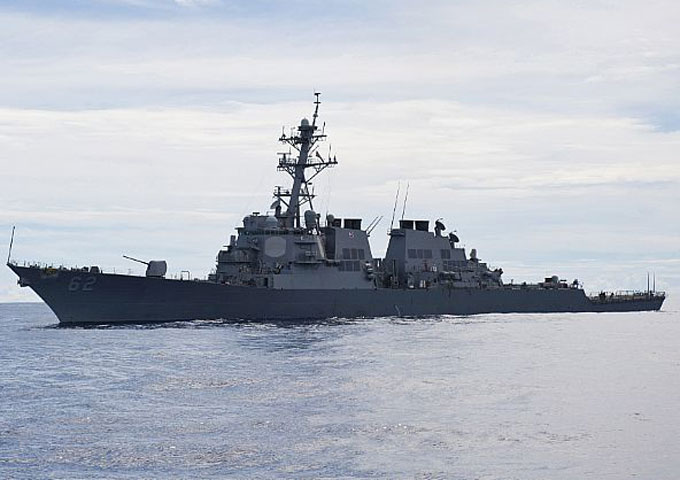North Korea to restart nuclear facilities
Reopening of major facility north of Pyongyang follows weeks of warlike rhetoric towards South Korea and the US.

North Korea will restart all nuclear facilities at its main Yongbyon complex, in the latest move which is likely to escalate tensions further with South Korea and the United States.
Plans have been announced to rebuild and restart nuclear facilities including its uranium enrichment facility and the 5 MW Yongbyon reactor which it closed in 2007, the state news agency KCNA said, quoting a spokesman at North Korea’s atomic energy agency.
Keep reading
list of 4 itemsEvacuation orders issued as wildfire grows near Canada’s Alberta oil patch
Energy summit seeks to curb cooking habits that kill millions every year
Thousands evacuate as wildfire grows ‘dramatically’ in western Canada
The report said the “readjusting and restarting” of nuclear facilities would be used for electricity shortages and military development.
The move was being made in line with a policy of “bolstering the nuclear armed force both in quality and quantity” as well as solving “acute” electricity shortages, the spokesman said.
‘Regrettable’
South Korea reacted immediately on Tuesday, with foreign ministry spokesman Cho Tae-young calling the report, if true, “regrettable.”
He said: “North Korea should keep their promise and agreements and they should keep to denuclearisation of the Korean peninsula. Our government will closely monitor the situation.”
UN chief Ban Ki-moon said “the current crisis has already gone too far” at a press conference in Andorra.
“Things must begin to calm down, there is no need for the Democratic People’s Republic of Korea to be on a collision course with the international community. Nuclear threats are not a game.”
|
“The current crisis has gone too far…Nuclear threats are not a game“ – Ban Ki-moon, UN Chief |
China and other countries also waded in, some offering regret at the news and urging restraint.
“We have noticed the remarks of the DPRK and express our regret,” Beijing’s foreign ministry spokesman Hong Lei said at a regular briefing, using the North’s official name. “We call on relevant parties to keep calm and exercise restraint.”
The reactor, closed as part of an international nuclear disarmament deal, was the sole source of plutonium for the North’s nuclear weapons programme. The country’s remaining plutonium stockpile is believed to be enough for four to eight bombs.
Al Jazeera’s Asia-Pacific reporter Florence Looi said the “declaration that this plant will resume means that North Korea could be a step closer to plutonium enriched weapons.”
The announcement follows weeks of warlike rhetoric from North Korea, including threats to launch nuclear strikes against the US.
The country has also declared that making nuclear arms and a stronger economy are the nation’s top priorities.
US defence
Meanwhile, on Monday evening, the US stationed a warship off the Korean penninsula coast to defend against a possible missile strike, signalling the latest in a series of publicised US deployments to counter North Korean threats.
The USS Fitzgerald, a 154-metre long Navy-guided missile destroyer, was moved to the southwestern coast on after taking part in annual military exercises, instead of returning to its home port in Japan, a US defence official told AFP Monday on condition of anonymity.
The deployment came hours after a gathering of North Korea’s rubber-stamp parliament adopted a law formalising the country’s status as a nuclear weapons state.
 |
| The 154-metre long USS Fitzgerald warship is now stationed off the Korean Peninsula [US Navy] |
Since North Korea launched a long-range rocket in December and followed it with a nuclear test in February, tensions have risen.
Subsequent UN sanctions and annual South Korea-US military exercises have been used by Pyongyang to justify a wave of increasingly dire threats against Seoul and Washington, including warnings of missile strikes and nuclear war.
In this light, the shifting of the USS Fitzgerald was “a prudent move”, the US defence official said, adding that it would offer “greater missile defense options should that become necessary”.
Earlier, South Korea’s new president, Park Geun-Hye, told senior military officials that any provocation from the North should be met with a “strong and immediate” military response, no matter what the political fallout.